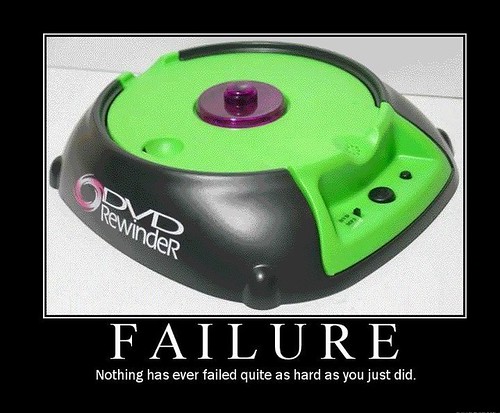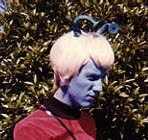Over on TrekBBS, I've been discussing two aspects of Star Trek novels that many people find very frustrating.
Firstly, one debate that rages, on and off, is the perception that licensed TV tie-in novels are somehow inferior because they must take their lead from the parent/source material (ie. live-action Star Trek episodes and movies, as aired), and that new readers are discouraged from reading them. Or, there is the almost-opposing perception that inter-continuity between ST novels is so tight that the supposed result is the same: ie. that new readers are discouraged from reading them.
Now, I must add that I'm very happy with the status quo because the modern ST novels, as a whole, seem to be at a peak of quality at the moment: solid storytelling in very generous chunks, and plenty of variety. my main beef is that I've fallen so far behind, mainly because I spend so much time here (ie. online). Of course, there are others who strongly disgree, and claim that the heyday of the ST tie-in is long gone.
One poster complained about "Easter eggs", those wonderful little in-jokes and bits of trivia that ST writers will seed through their work, either to provide avid fans (and themselves) with amusement, or to provide some inter-continuity between the novels, short stories and comics in unobtrusive ways. I mean, if an Easter egg is so obscure that you don't recognise it, why even worry if it might be there?
Surely, it's all a matter of personal taste? For every reference that has ever annoyed one fan, or passed unnoticed by their geek radar, another fan has acclaimed, "Hey cool!" And vice versa. Some references I might not have cared for might have been significant for them. For example, I never care if an author says Warp 5 for a three-day trip when it should be Warp 7, but some fans actually do these calculations. Ditto stardate inconsistencies. Different strokes... etc.
I'm happy to know that the Easter egg references (if I actually notice them) were significant enough for the author that they were included. For example, I can always tell which ST novelists are fans of Filmation's animated ST series (TAS), since they are usually the only ones to reference TAS events and people in the novels. An author calling a shuttlecraft the Fontana is probably a fan of DC Fontana's work on the ST TV series. "Vanguard" novel titles are named after "Rush" songs - whoever "Rush" might be? - and so on. One doesn't have to buy "Rush" CDs to enjoy the "Vanguard" novels, and one doesn't have to watch or know TAS, or read Peter David's "Star Trek: New Frontier", if a new ST novel or comic contains an obscure (to some) TAS or NF reference.
I challenged one poster to give examples of where references to other ST books have been "too gratuitous and/or uncool", and his response was to say that he was cancelling plans to buy any of the recently-announced TOS tie-in novels in 2009 and 2010. Gosh, my apologies to the ST novel writers! Looks like I managed to scare away one of their customers by disputing his disdain of Easter eggs in ST novels? (Guess I'll have to buy two of everything due in 2009 and 2010 now... Maybe there's still time? Eradicate all Easter eggs now!)

A different poster complained about which ST novels were targeted for reprint in trade-sized omnibuses. Of course, reprints are not made in an effort to gamble that the reprint will create a possible resurgence of interest. They are a response to the laws of supply and demand. Not enough demand, no supply.
There are many, many out-of-print ST novels out there. The ones that do get re-presented in some form are reprinted because their original sales figures were excellent and it is hoped they'll perform well again - to a new audience who might have missed them the first time. (ie. The four first "Rhiannsu" books, reprinted just in time for one, new, oft-delayed conclusion, "The Empty Chair".)
I suggested that a quick browse in a large second hand bookshop would uncover the mass market paperbacks he was looking for. I find it really hard to believe that London, UK, has less second hand bookstores than Sydney. (While our second hand stores have slowly vanished over recent decades, especially from the CBD, I still know about four with huge ST sections.)
A lot of second hand sellers have gone exclusively online these days. Sure, some ST novels are perceived as "rare" ("Mission: Gamma #1" before the recent trade paperback omnibus reprint) and command high prices, but I'm sure most ST titles would be quite reasonable online. Often, the postage is higher than the cost of the book. And online searching is so efficient!
It's called the "thrill of the hunt". I guess it's not for everyone? I did it - the hard way - for my first four or five years of collecting in the early 80s (every Thursday night and Saturday morning, for many months at a time, until all the shops knew me by name or at least reputation, and they'd often "save" things for me!) - and, you know, I still pick up the odd gap in my collection, but now using Steve Roby's Complete ST Library listings and the online searching facilities of Amazon.
These days many second hand stores have their entire collection on a database and, even if browsing in the bricks 'n' mortar stores, the managers can often tell you, as you walk in, whether the book is somewhere inside! As for early Pocket ST novels, many of these were on the bestseller lists, were kept "in print" for ages, and are in larger quantities than one might imagine. Every ST novel turns up somewhere, sometime! It's the thrill of the hunt to find the right title, in the right condition, and at the right price.










1 comment:
I used to be a big collector of ST novels back in the day, starting with James Blish and Alan Dean Foster's adaptations of the original and animated episodes and going on from there.
Mostly under the Ballantine imprint, the early novels varied in tone and quality, but I was indiscriminate in those days and it didn't matter.
Later on, however, I sort of lost touch with the genre, switching mainly to detective fiction, but every now and again I'll pick up a Trek novel on spec and see if it works.
I enjoyed the DS9 stories set after the series - the integration of new regular characters with established veterans worked well for me, and a good deal of effort went into the storylines.
Sadly, a lot of the other output from Pocket Books could be very 'hit and miss' and I think that might also have had something to do with my moving away to other genres.
It might be time to dig out the old stuff for a reread...
Post a Comment